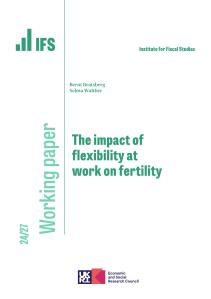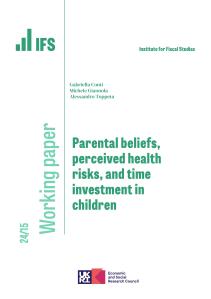In 2020–21, the total number of hours worked by young people aged 16–24 fell by more than a fifth from 2019–20, a drop of over a billion hours. Evidence from previous recessions tells us that young people who graduate during an economic downturn tend to suffer worse career outcomes that take several years to recover from.
Yet, remarkably, new IFS research finds no evidence of persistent negative effects on employment rates or job quality for cohorts that graduated during or just before the pandemic, compared with earlier cohorts. This is in stark contrast to the global financial crisis, when new graduates saw lower employment rates, slower occupational progression and worse job quality.
The research found that:
- The cohort that graduated in 2020, particularly those with university degrees, initially experienced worse outcomes. They struggled to find work immediately after graduation and were less likely to receive on-the-job training, and those with degrees started in lower-paid occupations than previous cohorts.
- However, the rapid economic recovery and boom in jobs vacancies allowed them to quickly recover lost ground. One to two years into their careers, they do not appear to have lower employment rates or worse job quality than previous cohorts.
- The cohorts that entered the labour market in 2019 and 2021 fared no worse than previous cohorts across a number of job quality measures. Up to one year after graduation (and up to two years for the 2019 cohort), they were no less likely to be in full-time, permanent jobs, to work in high-paid or professional occupations, to receive on-the-job training, or to work for a large firm.
- There were no significant differences by parental background on these measures of job quality – perhaps surprising given the lack of formal internships over the pandemic.
The fact that the pandemic cohorts have not fared worse than the cohorts preceding them does not, of course, mean that their prospects are rosy – even before the pandemic, young people were seeing their earnings stagnate, and they (like all workers) are now facing a squeeze on real earnings as a result of inflation. It may also be that some negative effects on the pandemic cohorts are yet to materialise. As the labour market becomes less tight, their loss of work experience and training over the pandemic may put them at a disadvantage.
Perhaps more concerning still are the prospects for the next two cohorts of graduates, who face a double whammy of having had their last years of education disrupted by the pandemic, and being set to enter the labour market in a prolonged recession.
Sam Ray-Chaudhuri, a Research Economist at IFS and an author of the report, said:
‘Despite the enormous amount of time spent not working by young people during the pandemic, the job outcomes of those graduating between 2019 and 2021 appear to be at least as good as those of previous cohorts. This surprising finding seems to be a result of the exceptionally tight labour market during this period. A lack of training or experience could harm these graduates in the future, however, and those about to graduate may be particularly vulnerable as the labour market cools.’










